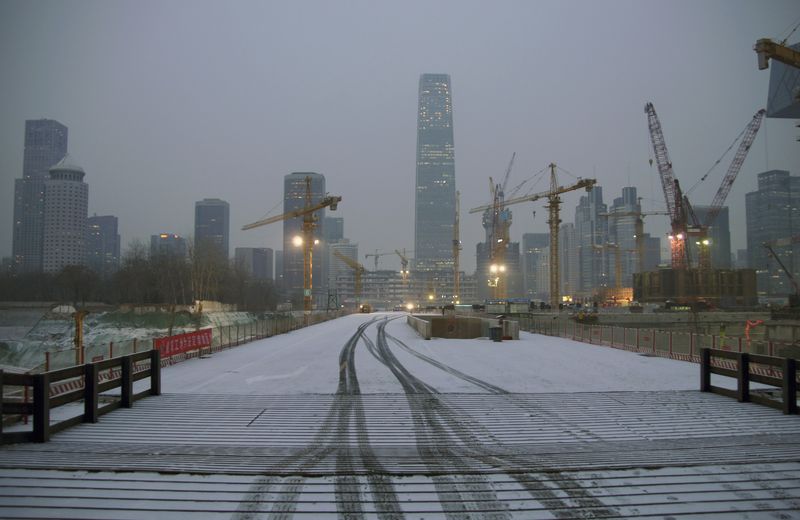BEIJING (Reuters) - China's factory growth likely inched up from a 1-1/2-year low in January, helped by a slight pick-up in momentum the previous month, but the bounce is not expected to last due to unsteady exports and slowing investment, a Reuters poll showed.
The official manufacturing Purchasing Managers' Index, or PMI, is forecast to inch up to 50.2 from December's 50.1, according to the median forecast of 11 economists in the poll.
A reading above 50-point level indicates an expansion in activity while one below that points to a contraction on a monthly basis.
The data, to be released on Feb. 1 alongside the official services PMI, will set the tone for what's likely to be seen in the world's second-largest economy this year: a contained slowdown that will show growth cooling further from a 24-year trough.
"Although there was slight uptick in industrial production, most of the rest of the economy still looks pretty weak," said Julian Evans-Pritchard from Capital Economics in Singapore.
"We still see the momentum of the economy as downwards," he said.
A housing slump, erratic growth in exports and a state-led slowdown in investment to help restructure China's economy weighed on the nation last year, dragging annual economic expansion down to 7.4 percent - a level not seen since 1990.
Despite the broad slowdown, factory output growth ticked up to a three-month high in December as production of transport equipment rose at its fastest rate since August.
To reflect China's "new normal" of slower but better-quality growth, economists at state think-tanks with knowledge of policy discussions said the government is likely to lower its 2015 economic growth target to around 7 percent, from 7.5 percent in 2014.
A separate private PMI survey published last week showed China's manufacturing growth stalled for the second straight month in January as companies cut prices at a faster clip to win new business.
And as a string of central banks surprised financial markets in recent weeks by loosening monetary policy to stoke growth and ward off deflationary pressures, some investors are also betting that China may ease policy once more.

China cut interest rates for the first time in over two years on Nov. 21, and some analysts believe it would again lower rates or the reduce the amount of deposits that banks have to keep as reserves this year to shore up activity.